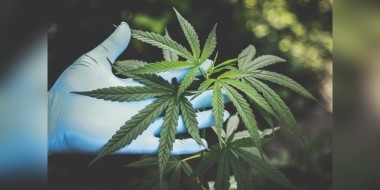New York, NY--The use and possession of cannabis has been a hot debate in the country for several years. The Controlled Substances Act of 1970 classifies cannabis, or marijuana, as a Schedule I substance, highlighting its high abuse potential. Despite this classification, many states have legalized the recreational and medical use of cannabis.
[Photo by Aphiwat chuangchoem via Pexels]
Cannabis has been legalized for recreational use in 19 states in the U.S, while 12 states have decriminalized its use. With decriminalization, possession of cannabis in limited amounts would not lead to any jail time.
States observe multiple factors when addressing legalization, including its many challenges.
Concerns about legalizing cannabis
National Conference of State Legislatures (NCSL) highlights areas around which these discourses occur, reinstating that under federal law, marijuana is defined as dangerous, and such classification makes taxation and banking complicated.
A significant challenge with legalizing cannabis lies in determining a level of impairment. NCSL notes that newer cannabis products with unfamiliar strains make this process challenging, as THC metabolization and retention in the human body differ from alcohol. Washington and Colorado draw the line at five nanograms or more of THC per milliliter to determine whether a person is driving under the influence of marijuana.
The issue of public safety is also a priority. For states that have legalized — or are looking to legalize — marijuana, a priority lies around safely regulating the legal marijuana market for adults while preventing its access for children. For this, basic checks lie in place, such as prohibiting anyone under 21 from entering dispensaries; the packaging, too, is children-restraint. However, this could only have a limited impact. There's already mounting evidence showing that adolescents are more prone to being addicted to cannabis.
"We know that young people are more vulnerable to developing substance use disorders," says Dr. Nora Volkow, director of National Institute of Drug Abuse and the lead author of a study analyzing the scope of addiction in adolescents, as per USA Today. "Though not everybody who uses a drug will develop addiction, adolescents may develop addiction faster than adults."
The study, published in 2021, found that 10.7% of teenagers aged 12 to 17 developed cannabis use disorders. The number was significantly lower among adults aged 18 to 25, at 6.4%.
For brands pushing for marijuana legalization countrywide, addressing this could only be a top priority centered around the operations' ethics.
Navigating the challenges
It's not surprising that the U.S. is pushing hard toward legalizing cannabis. A majority of Americans support this initiative. A national survey by Rasmussen Reports found that 62% of adults favor "national legalization of marijuana," while 23% are against the notion.
The shifting opinion towards legalization calls for comprehensive legal frameworks, and while overwriting laws can be tedious, certain states have had a head start. The state of Massachusetts legalized cannabis in 2016, both for medical and recreational use. It also put a Cannabis Control Commission in place — a system that helps regulate the cultivation, transport, testing, and sale of cannabis in both medicinal and recreational forms.
A regulatory framework acts as a complete package. Well-tested marijuana is safer to use and meets laboratory standards. Besides, companies need a license for the production and cultivation of cannabis. A well-regulated system in place limits the illegal market as well.
With the move to legalize marijuana now at the federal level — a Senate bill is set to legalize the substance for the first time in more than 50 years — states could look at Massachusetts and other regions where it has been legalized properly with appropriate regulatory frameworks in place.
And while states are still gathering post-legalization data, there are plenty of lessons to learn and positives to take. Studies have highlighted that legalization has created thousands of jobs across the country — potentially creating more jobs than the mining industry. It's also significantly adding to the states' economy.
States have a role in supporting research and educating the public about the health effects of marijuana. Prevention programs for adolescents that work to debunk misconceptions saying marijuana is safe, acceptable, and legal for children, as their brains are still developing, can go a long way. The legalization course is a step at a time, with plenty to look back at, reflect on, learn from and improvise.
